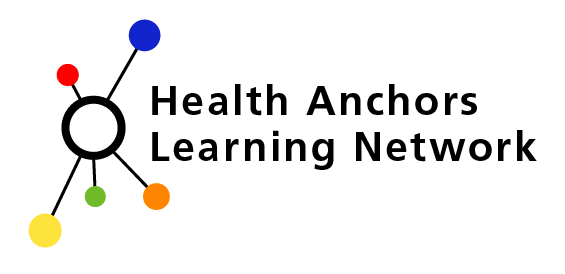The NHS’s future workforce and Levelling up
Supporting local young people into work and apprenticeships within the NHS
Guest blog from Andrew Attfield MFPH, Associate Director Public Health, Public Health Team, Barts Health NHS Trust
As Stevie Wonder famously sung, “the children are our future”, and it is hard to argue with that. But for the NHS addressing this is more than a platitude than a necessity. NHS Providers are reporting 110,000 vacancies at the moment which are a major impediment to takling the backlog of appointments and procedures. NHS workforce shortage has "serious and detrimental" impact on services (NHS Providers). At the same time, as the ONS are reporting, how public sector pay is lagging significantly behind private sector pay Average weekly earnings in Great Britain - Office for National Statistics (ons.gov.uk).
At Barts Health we noticed the difficulties of attracting young people into the community employment programmes we run in partnership with the Prince’s Trust. Young people were telling us they wanted to work for us but could get a better paid job at Westfield in Stratford without the rigmarole of applications forms and onboarding. If they got through to interview stage, they were up against adults with more experience who met the recruitment criteria more closely that a young person with very little on their CV. At the same time, we were acutely aware of the need to connect with more excluded groups of young people to ensure that we were fulfilling our anchor mission to address inequalities in our East London communities. With NEET numbers still rising (see Labour Market Trends 2022 | NHS Employers) there is an overlap between labour market and community needs (see HALN’s recent blog, ‘Workforce gaps and community needs: where the Venn diagram meets’).
We needed to build a bridge. To address these issues, we enlisted the help of the emerging leaders programme at JP Morgan, who’s UK base is at Canary Wharf, which is in our patch. The JPM team provided a refreshingly commercial take on our issues with a SWOT analysis that showed we needed to be more joined up and focussed on this section of the labour market. Through a series of meetings with the volunteers on the programme, who were all based in East Asia or Australia we thrashed out a series of recommendations and set up a Youth Opportunities Forum to progress these.
We already were doing a lot. We had strong links with 37 schools in East London as part of our widening participation scheme – Healthcare Horizons – which is successfully providing awareness of health careers and providing practical help with careers advice and work experience and we had entered into a partnership with Newham College to set up the Barts Health Futures hub to provide an access route into jobs and careers. We had good relationship with the Prince’s Trust, and Local Authorities and community partners so were well place to access young people and support, and indeed had established a talent pool of young people.
However this still didn’t provide the stepping stones we needed for young people, and momentum had dropped with the impact of COVID. So with the support of the Forum we established a Prince’s Trust Youth programme whereby each hospital in the Barts group was asked to set aside vacancies that could be filled from the Healthcare Horizons’ talent pool. Targets were set based on still mix and vacancy level for each hospital and a challenge process set up at Vacancy Control level to secure ringfenced vacancies. Similar targets were set up for direct entry apprenticeship positions and New to Care training schemes set up using the Futures Hub to specifically recruit to Healthcare Assistant roles. As a result 183 young people have secured jobs and apprenticeships at the Trust and the programme is well on course to deliver its target of 200 sustained in employment by next June. There is still a lot to do, particularly in opening up apprentice pathways but shows what can be done.
Key lessons learned:
Great leadership from the top matters – Group People Director Daniel Waldron chairs the Youth Opportunities Forum and ensures progress
Working with the internal process of an organisation is very important. These include recruitment methods, influencing recruiting managers and convincing hospital executives that recruiting local young people is key to their workforce.
Jobs are currency when it comes to partnership and they provide leverage when gathering external support and resource
Having an anchor vision means that business needs can be supplemented with social purpose. And in health terms these are not either/or but plus/plus.
A lot of the other work we do in provider public health is based on health equity and in a sense this work forms part of this. Ensuring that all sections of the community have access to positive life choices such as good quality work and careers is a health outcome and one that contributes to the NHS’s levelling up vision.
Our work with careers was recently covered by BBC London News, which you can watch here. There’s nothing like hearing from the community!

